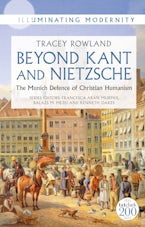- Home
- philosophy
- De Anima (On Soul)

De Anima (On Soul)
Translated by David Bolotin
164 Pages
- Paperback
- ISBN: 9780881466645
- Published By: Mercer University Press
- Published: August 2018
$18.00
Aristotle’s De Anima remains to this day one of the most influential and rigorous treatments of the soul in the history of philosophy. Structured around an account of the diverse species of souls, as well as their characteristic faculties, the text tackles a number of challenging topics along the way: what it means for a being to possess life, the mechanics of intricate operations such as sense-perception, imagination, and thought, different kinds of animal movement, and so on. Difficulties arise from the fact that translators today have access not to Aristotle’s original text, but rather to collections of manuscripts with various textual inconsistencies. Translation, then, requires preliminary judgments about which manuscripts should be considered valid (vii-viii). Under these conditions, being faithful to Aristotle’s thought is a daunting task.
David Bolotin’s translation of De Anima aims to faithfully present Aristotle’s writings on the soul while acknowledging the translational obstacles involved. This is immediately apparent in his decision to use Wilhelm Biehl’s Greek edition of the text, recently revised by Otto Apelt in a Felix Meiner edition (1995), over that of David Ross (1961), whom Bolotin considers a somewhat untrustworthy editor. Bolotin also consults editions by Pawel Siwek (1965) and Antonio Jannone (1966), both of whom had access to manuscripts unavailable to Biehl and Ross (viii). Most pertinent for the reader, however, is Bolotin’s relentless justification for each of his translation choices of key terms via footnotes. What results is a thorough English edition that provides valuable insight into the text’s ambiguities, both translational and theoretical.
There is much to commend about Bolotin’s work. As already mentioned, he consistently explains each of his translation choices for key terms in the footnotes, along with transliterations of the original Greek. For instance, he translates the term entelecheia, which refers to a being’s self-maintenance in its end, as “completion” (that is, of some potentiality). This completion always expresses itself in “activity,” designated by the term energeia. However, since Aristotle sometimes uses energeia to refer not to activity but a weaker notion of actuality (again, of some potentiality), Bolotin typically opts to render energeia as “actuality,” replacing it with “activity” where necessary (5, n. 7). This remarkable kind of scrupulousness, combined with a near word-for-word translation, ensures as close to a literal translation of the original text as possible (ix). Perhaps unsurprisingly, what this method gains in textual fidelity, it sacrifices in readability. Bolotin’s sentences are at times cumbersome. He attempts to address this issue by including bracketed phrases to improve sentence flow, though the solution is by no means perfect.
Of course, not every passage is easily translatable, and some textual ambiguities will inevitably require interpretive judgments. To that end, Bolotin alerts his readers whenever a word or phrase arises whose translation is not immediately obvious. He cites passages elsewhere in the text (or even in other works by Aristotle) that corroborate or challenge his interpretive choices, points to manuscript inconsistencies, notes alternatives put forth by other translators, and acknowledges ambiguities that are not easily resolvable. These are welcome asides for newcomers to De Anima, who are afforded the resources to begin familiarizing themselves with the text’s exegetical conundrums, as well as for experienced readers who can easily use the footnotes to cross-reference alternative translations and manuscripts to assess Bolotin’s work.
One possible weakness of Bolotin’s work is its lack of supplementary resources to help orient beginners to the text. Bolotin is surely correct that proper translation goes a long way in elucidating Aristotle’s thought. But the conceptual taxonomies in De Anima are difficult to navigate even for seasoned Aristotelians. Though Bolotin’s footnotes offer some interpretive aid, even he admits that they do not constitute “anything approaching a full commentary on the text” (x). A glossary of key terms, additional explanatory footnotes, or a separate section containing an overview of Aristotle’s anthropology would have gone a long way in assisting inexperienced readers. Nevertheless, Bolotin’s translation ought to be celebrated for its meticulous rendering of a philosophical classic. Though beginners may wish to arm themselves with a commentary, it is easily recommendable to anyone hoping to undertake a systematic analysis of the soul.
Joseph Lim is a graduate student in Moral Theology at the University of Notre Dame.
Joseph LimDate Of Review:March 17, 2020
David Bolotin is a retired teacher from St. John's College in Santa Fe, New Mexico.











